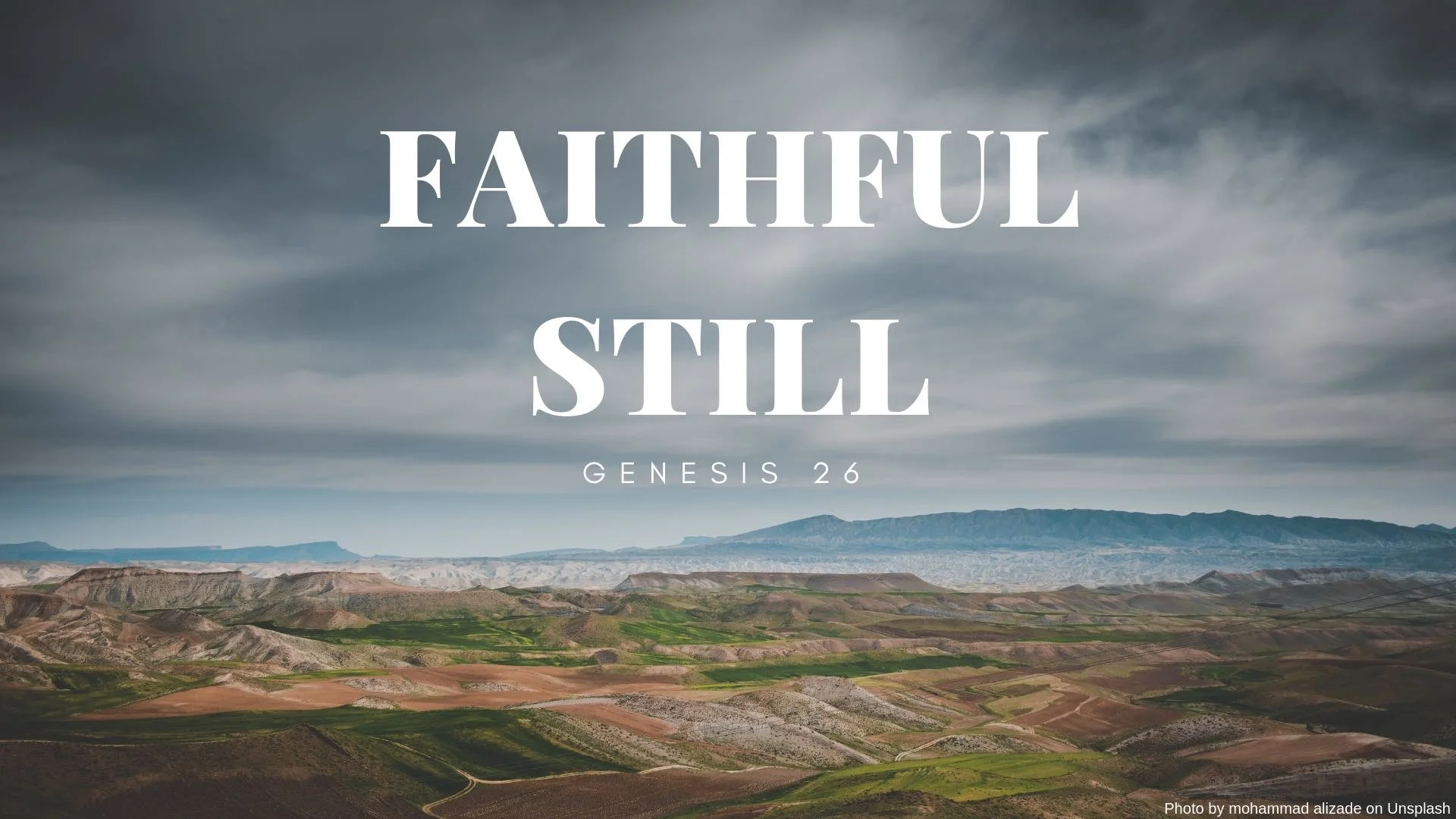Optimistic
A recent article from Business Insider was entitled “Most Americans don't think life will be better for today's kids.” In other words, most Americans are pessimistic about the future. According to this article,
A new Gallup poll finds Americans aren't optimistic about the economy, with optimism at a record low.
Americans were asked if they think life will be better for the next generation, and most don't think so.
In a survey of 812 adults from September 1 to 16, Gallup asked: "In America, each generation has tried to have a better life than their parents, with a better living standard, better homes, a better education, and so on. How likely do you think it is that today's youth will have a better life than their parents--very likely, somewhat likely, somewhat unlikely, or very unlikely?"
The majority of respondents responded that it was either somewhat or very unlikely — 57% in total. Just 13% said it was very likely, and 29% said it was somewhat likely. That's technically the lowest since polling firms started asking this question in 1996, although it falls within two points of 2011's measure, Gallup senior editor Megan Brenan told Insider.
"It's kind of a bleak picture in the midst of this high inflation and this challenging period that we're coming off of economically," Brenan said.
- Business Insider
This makes sense to me. I am writing this at the end of the year 2022 but even if you’re reading this in the future I believe things will not have improved. I believe things will continue to deteriorate yet I consider myself an optimist. This may seem odd but it has to do with my worldview. I look at reality through the lens of a biblical worldview (check out The Conclusion of The Whole Matter) and this allows me to remain optimistic even if all the evidence around me says otherwise.
Still unsure about what I am talking about? A brief look at the life of the prophet Jeremiah might help you understand what I mean.
Meet Jeremiah
Jeremiah was born and raised in Judah under Assyrian domination during the reign of wicked King Manasseh (687–642 b.c.). Early in his reign Manasseh began reintroducing and multiplying the paganism his father, Hezekiah, purged from Judah. He rebuilt the high places Hezekiah had destroyed, erected altars to Baal, and made an Asherah pole. He worshiped all the starry hosts and built altars to pagan gods in the temple itself. He offered his own son as a burnt sacrifice and practiced sorcery and divination (2 Kgs 21:2–9; 24:3–4; Zeph 1:4–5).
It is unclear when Jeremiah first came to understand that the upstart nation of Babylon was going to be God’s instrument of judgment on his own people. However, when he realized what was to be, he unflinchingly warned his people that judgment was imminent. His efforts to turn them back to God were of no avail. His only reward was to be branded a traitor, threatened, and imprisoned.
Another way of introducing Jeremiah is to see him as the most “human” of all the prophets. More is known about the personal and inner life of Jeremiah than any other prophet. When reading through Jeremiah we notice that he experiences alternating moods of despair and exaltation. Perhaps this is why it is easier for us to identify with him than with a prophet as majestic and remote as Isaiah, as self-disciplined and visionary as Ezekiel, or as fiery as Amos.
When reading Jeremiah I am inspired by the moments when he exhibits courage, compassion, and sensitivity. But the text also reveals Jeremiah’s darker side of moodiness, introspection, loneliness, doubt, and retribution toward his personal enemies (Jeremiah 11:20). At times he would call for vengeance on those who attacked him but he would also intercede passionately for God to spare his people. I admire how Jeremiah could stand his ground against personal threats but also weep uncontrollably as he considered the suffering of his own people. Though he is frequently called the “weeping prophet,” his tears should be interpreted not as evidence of inner weakness but as proof of his love for his people. I imagine he gained a reputation for courage during his lifetime, since centuries later comparisons were made between Jesus and Jeremiah (Matt 16:14).
An evaluation of Jeremiah by most standards of success would brand him an abysmal failure.
He preached for forty years without convincing the people that he was God’s prophet.
He was threatened, ridiculed, and physically abused by his own people.
Jerusalem was finally destroyed, and Judah ceased to exist as a nation because the people refused to accept Jeremiah’s remedy for deliverance—turn back to God and submit to the Babylonians.
However, we must not judge Jeremiah by human standards. God has a different measuring stick by which he judges a person’s life. His is the test of obedience. God only required that Jeremiah obey him by proclaiming his message. Jeremiah was not responsible for a favorable response or lack of response.
One who is an obedient servant of the Lord today is not held accountable for lack of response from those who hear his message. The great rulers of Jeremiah’s day—Ashurbanipal, Nebuchadnezzar, Neco, and Hophra—have largely been forgotten. Their influence is nil, whereas Jeremiah’s name and influence remain because of his obedience to God’s will for him.
- F. B. Huey, Jeremiah, Lamentations, vol. 16, The New American Commentary (Nashville: Broadman & Holman Publishers, 1993), 24.
Jeremiah’s message speaks beyond his world because it was the message of God, Lord of all worlds. It speaks to every world in which there is pride, rebellion against God, spiritual blindness, and where God’s people are in need of encouragement and hope. (F. B. Huey, 21-24.)
Political and Theological Tensions
Jeremiah was constantly at odds with his contemporaries (Jeremiah 27–29). He was unable to shake his countrymen from their smug complacency. Jeremiah was convinced that Judah would not survive not only because of its wickedness but especially because of its refusal to repent and return to God (Jeremiah 2–6). He saw Babylon as God’s instrument of judgment on his people and warned that Judah would be destroyed (Jeremiah 1:11–19; 4:5–31; 25:1–14). This kind of preaching was unpopular and almost cost his life on multiple occasions (Jeremiah 18:18; 19:1–20:6; 26:1–24; 36:1–26; 37:11–16; 38:1–16).
The tension between Jeremiah and his countrymen was partly political because the people perceived Jeremiah as a traitor and a Babylonian sympathizer (Jeremiah 37:11–16). The tension was also theological.
Jeremiah was convinced on theological grounds that the nation was under God’s judgment and would be punished (compare Jer 7:5–7 and Deut 10:18–20; Jer 4:4 and Deut 10:16; Jer 7:9 and Deut 5:9, 17–20).
His opponents argued (Jeremiah 6:14; 28:10–11) that God had given them the land as part of an unconditional covenant (Genesis 17:1–8) and had promised that a Davidic ruler would always be on the throne (2 Samuel 7).
Destruction of the nation did not fit their theological view (Jeremiah 26:1–24). (F. B. Huey, Jeremiah, Lamentations, vol. 16, The New American Commentary (Nashville: Broadman & Holman Publishers, 1993), 31–32.)
The emphasis on judgment looms large in the book, but hope is also prominent. Just as he could warn of disaster in the best of times, he could also proclaim hope when there seemed to be none (Jer 32:1–44). Jeremiah presented God as the Divine Warrior. He frequently called him “Lord of Hosts,” a military term. God would fight against sin wherever he found it, whether in Judah or in other nations. Jeremiah also saw God as the Lord of creation and Sustainer of the universe (Jeremiah 5:22). But he also knew him to be a personal God who listens patiently to doubts, complaints, and questions. Much of the theological content in Jeremiah is implied theology. (F. B. Huey, 34-35)
Personal Journey
I have been reading through Jeremiah for many weeks and as I write this post I am only at chapter 34 but I wanted to share some of the lessons I have been learning. Jeremiah has taught me that God’s message is not always popular, but it reveals the heart of God and a reality that goes beyond what is immediately available to us through our senses. God’s word is more true than what I can see, hear, taste and smell. God’s word is more true than what I can arrive at through logic and reasoning. God’s word is my primary source of hope, strength, courage, and direction in life.
You are probably wondering why this post is entitled “Optimistic” since most of what I have shared so far seems bleak.
The Heart of God
Throughout the book of Jeremiah, we catch glimpses of the heart of God. Probably one of the most popular verses found in Jeremiah is found in chapter 29 verse 11.
For I know the thoughts that I think toward you, says the Lord, thoughts of peace and not of evil, to give you a future and a hope.
- Jeremiah 29:11NKJV
This is a great verse that gets quoted often. Did you know that it’s part of a letter written to the captives/exiles? Jeremiah wrote a letter to all who had been carried away by Nebuchadnezzar to Babylon. Jeremiah was telling God’s people who were exiled, living in Babylon, that God was going to give them a future and hope. In their moment of doubt, uncertainty, sadness, and despair Jeremiah reminded them that God had not forgotten about them, that God still loved them and would continue to provide for them and would eventually bring them out of captivity.
Jeremiah is not offering a quick fix. Jeremiah is not offering empty promises. Jeremiah is reminding the people of the character of their God, a personal God who loves, provides, and delivers. Bad things happen in this world, and what Israel was experiencing was the result of generations making bad choices, rebelling against God, and oppressing the most vulnerable in their midst. But even while they were experiencing judgment from God they were to have hope, because God wanted what was best for them. This is not an easy concept to grasp, especially when we are suffering, but it does bring hope. Our hope is not that God is going to miraculously make all of life’s challenges disappear. Our hope is not that God will always protect us from the consequences of our rebellious behavior, but rather that God is merciful and loving and has our best interest at heart even when we feel abandoned by Him.
Jeremiah was reminding the exiles that God had not forgotten them, God had not abandoned them, and God still loved them and wanted what was best for them. Jeremiah’s message is not easy, it is not simple, but rather complex, though also hopeful.
For I am with you,’ says the Lord, ‘to save you;
Though I make a full end of all nations where I have scattered you,
Yet I will not make a complete end of you.
But I will correct you in justice,
And will not let you go altogether unpunished.’
- Jeremiah 30:11 NKJV (bold mine)
When we experience God’s correction it does not mean that He has abandoned us. When we experience fear and anxiety, it does not mean that God does not love or care. By faith, we must trust that God is powerful and loving and that everything will work out in the end, because of who He is.
Though Jeremiah had warned the people about what would happen, God does not threaten or scare them into a relationship with Him, rather He chooses to use love and mercy.
The Lord has appeared of old to me, saying:
“Yes, I have loved you with an everlasting love;
Therefore with lovingkindness I have drawn you.
- Jeremiah 31:3 NKJV
God had to judge Israel, they had intentionally gone after other gods and even offered infant sacrifices (2 Kings 21:6; 24:3-4). God had to step in and put a stop to the evil that was taking place among His chosen people. But God had not forgotten them. During their exile, God was not threatening them but rather wooing them with lovingkindness. In the midst of their exile God was giving them hope.
Is Ephraim My dear son?
Is he a pleasant child?
For though I spoke against him,
I earnestly remember him still;
Therefore My heart yearns for him;
I will surely have mercy on him, says the Lord.
- Jeremiah 31:20 NKJV
God’s plan for his people is not one of nationalism. Their blessing does not come from their national identity, but rather from their personal relationship with God.
But this is the covenant that I will make with the house of Israel after those days, says the Lord: I will put My law in their minds, and write it on their hearts; and I will be their God, and they shall be My people.
- Jeremiah 31:33 NKJV
Being a child of God was not so much about claiming Abraham as their father as it was about having God’s law in their minds. This truth translates to today. Being a follower of God is more than church attendance, it is not about voting a certain way, it is about living your life in accordance with the principles God has given us. If you are dishonest, abusive, violent, mean.. then it matters little what you call yourself, what church you go to, or how you vote. God wants your heart. He draws you with lovingkindness, He wants to save you and to provide for you always. God wants you to not only know His heart but also to reflect it in your life.
“For thus says the Lord: ‘Just as I have brought all this great calamity on this people, so I will bring on them all the good that I have promised them.
- Jeremiah 32:42 NKJV
God keeps His word, we can trust Him to do what He says He will do.
One common theme with God is His desire to be with us. (Jeremiah 24:7; 30:22; 31:33)
They shall be My people, and I will be their God;
- Jeremiah 32:38 NKJV
These verses remind me of the words of Jesus recorded in John 14.
“Let not your heart be troubled; you believe in God, believe also in Me. In My Father’s house are many mansions; if it were not so, I would have told you. I go to prepare a place for you. And if I go and prepare a place for you, I will come again and receive you to Myself; that where I am, there you may be also.
- John 14:1-3 NKJV
Same God, same sentiment. The same God who created a perfect world and rested on the 7th day because He wanted to spend time with us still desires to be with us. Jesus is coming to take us to be with Him. I will not go into last days prophecy (eschatology) but God has revealed to us that things will get worse before Jesus comes again. But this should not be reason for us to fear the future. We serve a mighty God who always provides for His people. God has always provided and always will provide. This does not mean that it will be easy, but it does mean that it will be okay. Everything will always be fine regardless of how difficult things might get.
Jeremiah, while living through an absolutely terrible time in the history of Israel saw the hope that existed in God because of who He is and because of His great love. We who are aware of what Jesus did for us should have an ever better understanding of the heart of God.
What then shall we say to these things? If God is for us, who can be against us? 32 He who did not spare His own Son, but delivered Him up for us all, how shall He not with Him also freely give us all things?
35 Who shall separate us from the love of Christ? Shall tribulation, or distress, or persecution, or famine, or nakedness, or peril, or sword?
37 Yet in all these things we are more than conquerors through Him who loved us. 38 For I am persuaded that neither death nor life, nor angels nor principalities nor powers, nor things present nor things to come, 39 nor height nor depth, nor any other created thing, shall be able to separate us from the love of God which is in Christ Jesus our Lord.
- Romans 8:31-32, 35, 37-39.
My optimism does not come from my present circumstances, but from the character of the God I worship.
So whatever happens economically or politically in the world I remain optimistic because my hope comes from God who always provides for all my needs. My only concern is to be faithful to Him and to be used by Him to give hope and alleviate suffering. I just don’t want to lose sight of what I am called to do in the midst of all the chaos. I am not here to transform the world necessarily, but I am here to make a difference in the lives of those within my sphere of influence.
Who is God calling you to bless?
What gifts has God given you that He wants you to use to bless those around you?
Focus on what you can do. Look to God, and leave to Him the things that are beyond your control.
Never forget that ultimately, our goal is eternal life with Jesus. This old world will only go from bad to worse, but that should not cause us to despair. As things get worse, we continue to do good, never tiring of helping those in need. As God provides for all our needs we continue to live for Him, looking forward to the day we will see Him face to face.
I would like to close with the words found in Revelation 21.
Now I saw a new heaven and a new earth, for the first heaven and the first earth had passed away. Also there was no more sea. 2 Then I, John, saw the holy city, New Jerusalem, coming down out of heaven from God, prepared as a bride adorned for her husband. 3 And I heard a loud voice from heaven saying, “Behold, the tabernacle of God is with men, and He will dwell with them, and they shall be His people. God Himself will be with them and be their God. 4 And God will wipe away every tear from their eyes; there shall be no more death, nor sorrow, nor crying. There shall be no more pain, for the former things have passed away.”
- Revelation 21:1-4 NKJV








